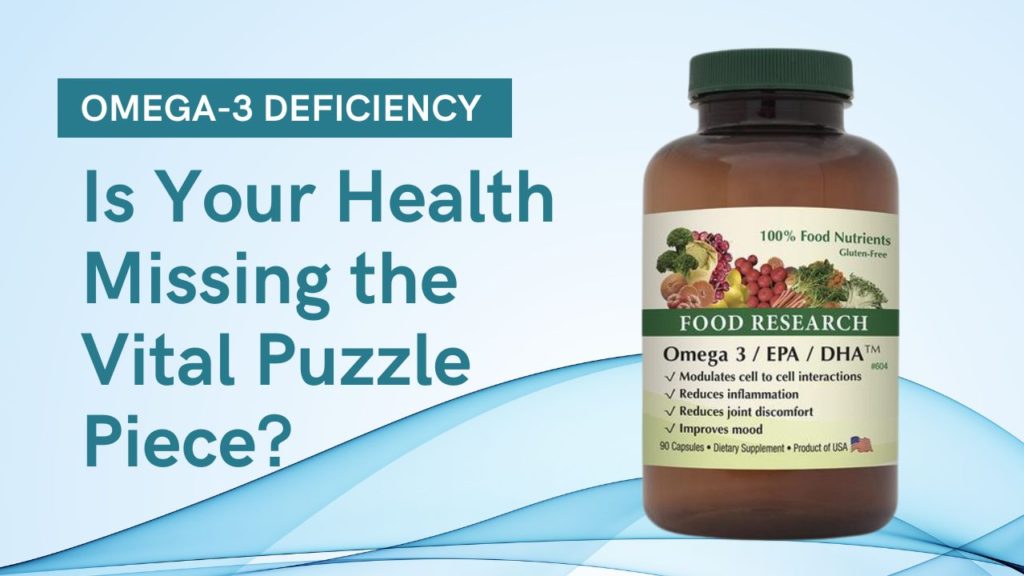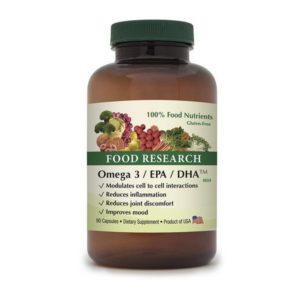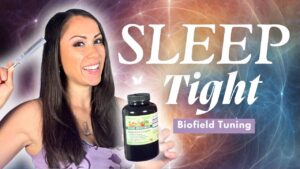In the vast landscape of nutrition, one essential element often overlooked is omega-3 fatty acids.
Comprising DHA (docosahexaenoic acid), EPA (eicosapentaenoic acid), and ALA (alpha-linolenic acid),
these unsung heroes play a crucial role in our well-being.
This blog aims to demystify these vital components, exploring their significance and the potential consequences of imbalances and deficiencies, particularly within the American diet.
The ABCs of Omega-3 Fatty Acids:
1. DHA (Docosahexaenoic Acid): The Brain’s Best Friend:
DHA, short for docosahexaenoic acid, is an omega-3 fatty acid crucial for optimal brain function. It serves as the structural foundation of brain cell membranes, playing a vital role in signal transmission between neurons. DHA is particularly abundant in the gray matter of the brain, emphasizing its importance for cognitive processes such as memory, focus, and mental clarity.
In the context of the American diet, which often leans heavily on processed foods and lacks sufficient fatty fish consumption, DHA deficiencies are prevalent. This deficiency can lead to cognitive impairments, making it essential to recognize the importance of DHA and consider supplementation.
Food Research Omega-3 Supplement offers a reliable source of DHA, supporting optimal brain function.
2. EPA (Eicosapentaenoic Acid): Inflammation Buster:
EPA, or eicosapentaenoic acid, is another key omega-3 fatty acid celebrated for its anti-inflammatory properties. It acts as a precursor to signaling molecules that help regulate inflammation in the body. In addition to its anti-inflammatory role, EPA plays a crucial part in maintaining cardiovascular health by promoting healthy blood vessels and reducing the risk of blood clots.
In the typical American diet, characterized by an abundance of processed and fried foods, there is a risk of an imbalance between omega-3s and omega-6s. This imbalance can undermine EPA’s anti-inflammatory effects, potentially leading to chronic inflammation and associated health issues. Food Research Omega-3 Supplement provides a natural anti-inflammatory boost, helping restore harmony between omega-3s and omega-6s.
3. ALA (Alpha-Linolenic Acid): The Plant-Based Source:
ALA, or alpha-linolenic acid, is the plant-based omega-3 fatty acid found in various seeds and nuts. While not as directly involved in brain function as DHA, ALA is essential for its role in supporting overall heart health. The body can convert ALA into DHA and EPA, although this conversion process is not highly efficient.
For individuals embracing plant-based lifestyles, ALA from sources like flaxseeds and chia seeds is a critical component of their omega-3 intake. However, the excessive consumption of omega-6-rich vegetable oils in the American diet can disrupt the conversion of ALA to DHA and EPA, creating an imbalance. Understanding this delicate dance between omega-3s and omega-6s is key to maintaining overall health.
Health Food Dilemma: Navigating Choices for a Healthier You
As we delve into the intricacies of omega-3s, it’s essential to shed light on a common
misconception—the assumption that all health foods unequivocally contribute to a balanced omega-3 profile.
Unfortunately, even within the realm of healthy foods, there’s a potential pitfall. Let’s explore how these seemingly wholesome choices might impact the delicate balance between omega-3s and omega-6s.
Signs of Omega-3 Deficiency:
1. Skin SOS: Unraveling the Impact on Your Glow
The Culprit: Omega-6 Dominance
Incorporating healthy foods into our diet may inadvertently overlook a crucial aspect. Some supposedly healthy options might be loaded with omega-6-rich oils, contributing to a deficiency in omega-3s. This imbalance not only affects skin health but challenges the notion that all healthy foods are created equal.
2. Mental Fog: Navigating the Mind’s Terrain
The Culprit: Unraveling the Omega-3 to Omega-6 Ratio
As we strive for mental clarity through nutrient-rich diets, it’s important to acknowledge that some healthy foods may contribute to an unfavorable omega-3 to omega-6 ratio. This imbalance can compromise our cognitive functions, challenging the assumption that all health-focused choices unequivocally support brain health.
Joint Whispers: Understanding the Aches
The Culprit: Processed Foods; Stealthy Role
Joints, the silent heroes of your body’s mobility, can be adversely affected by the American diet’s reliance on processed foods. These often contain inflammatory triggers, exacerbating joint discomfort.
The imbalance between omega-3s and omega-6s, particularly when leaning toward an excess of the latter contributes to chronic inflammation and may amplify joint pain.
Consider the prevalence of pre-packaged meals and fast-food options, commonly associated with high levels of omega-6 fatty acids. These dietary choices may contribute to a chronic inflammatory state, potentially leading to joint discomfort and stiffness.
4. Heart Matters: Decoding Cardiovascular Implications
The Culprit: Imbalanced Omega-3 to Omega-6 Ratio
Your heart, the steadfast rhythm of life, is intricately linked to the omega-3 to omega-6 ratio. In the American diet, the overconsumption of omega-6-rich oils can tip this balance unfavorably.
An excess of omega-6s, coupled with a deficiency in omega-3s, can contribute to elevated inflammation and potential cardiovascular issues.
Imagine the routine use of vegetable oils in cooking and the prevalence of processed foods in many American diets. This chronic exposure to omega-6 dominance can lead to a pro-inflammatory environment, potentially impacting heart health over time.
Restoring Balance:
1. Smart Swaps: Making Informed Dietary Choices
Simple Changes with Significant Impact:
Empower yourself by making conscious dietary choices. Swap out processed snacks for whole, nutrient-rich foods. Opt for cooking oils with a balanced omega-3 to omega-6 ratio, such as olive oil or flaxseed oil. Small changes in your daily choices can go a long way in restoring the delicate balance your body craves.
2. Supplements with Caution: Navigating the Supplement Landscape
Guided Supplementation:
Considering omega-3 supplements? Proceed with caution. Choose high-quality supplements like Food Research Omega-3 Supplement, derived from pure and sustainable sources.
Always consult with a healthcare professional to ensure that supplementation aligns with your individual health needs. Get A Free 15 Minute Consultation With Dr. Jacqueline
Food Research Omega 3 / EPA/ DHA Supplement: Your Path to Optimal Health
Introducing Food Research Omega-3 / EPA / DHA Supplement:
In the quest for a balanced omega-3 profile, Food Research Omega-3 Supplement emerges as a reliable ally. Pure, sustainable, and plant-based, it provides the essential fatty acids your body craves for optimal skin, brain, joint, and heart health.
Benefits of Omega-3 EPA & DHA Supplement:
– Nourishes skin for a radiant complexion.
– Supports mental clarity and cognitive well-being.
– Aids in reducing joint discomfort and promoting flexibility.
– Contributes to a balanced omega-3 to omega-6 ratio
– Supports cardiovascular health by maintaining a balanced omega-3 to omega-6 ratio.
– Promotes overall well-being with pure and sustainable omega-3 fatty acids.
– Suitable for various dietary preferences with its plant-based formulation.
Explore Food Research Omega-3 Supplement Here
Conclusion:
As we conclude our exploration of the omega-3 puzzle, the message is clear: your dietary choices shape not only your health but also the intricate balance between omega-3s and omega-6s. Recognize the signs, make informed choices, and embark on a journey toward a harmonious omega-3 profile.
Ready to take control of your omega-3 destiny? Check out our detailed tips for restoring balance and elevating your journey toward optimal health with Food Research Omega-3 Supplement.
Ensure you’re getting the optimal levels of essential fatty acids by adding an Omega-3 Test to your order. Discover how your current levels measure up and adjust your supplements for peak health benefits.










